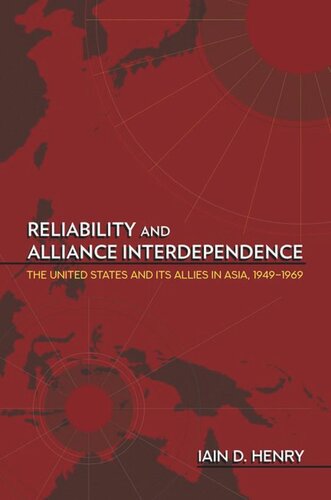

Most ebook files are in PDF format, so you can easily read them using various software such as Foxit Reader or directly on the Google Chrome browser.
Some ebook files are released by publishers in other formats such as .awz, .mobi, .epub, .fb2, etc. You may need to install specific software to read these formats on mobile/PC, such as Calibre.
Please read the tutorial at this link: https://ebookbell.com/faq
We offer FREE conversion to the popular formats you request; however, this may take some time. Therefore, right after payment, please email us, and we will try to provide the service as quickly as possible.
For some exceptional file formats or broken links (if any), please refrain from opening any disputes. Instead, email us first, and we will try to assist within a maximum of 6 hours.
EbookBell Team

4.0
96 reviewsIn Reliability and Alliance Interdependence, Iain D. Henry argues for a more sophisticated approach to alliance politics and ideas of interdependence.
It is often assumed that if the United States failed to defend an ally, then this disloyalty would instantly and irrevocably damage US alliances across the globe. Henry proposes that such damage is by no means inevitable, and that predictions of disaster are dangerously simplistic. If other allies fear the risks of military escalation more than the consequences of the United States abandoning an ally, then they will welcome, encourage, and even praise such an instance of disloyalty. It is also often assumed that alliance interdependence only constrains US policy options, but Henry shows how the US can manipulate interdependence to set an example of what constitutes acceptable allied behavior.
Henry tests this theory of alliance interdependence using case studies drawn from Asia during the first half of the Cold War. Using declassified documents, he explores five case studies involving US alliances with South Korea, Japan, the Republic of China, the Philippines, Australia, and New Zealand. Reliability and Alliance Interdependence makes a substantial contribution to our understanding of how America's alliances in Asia function as an interdependent system.